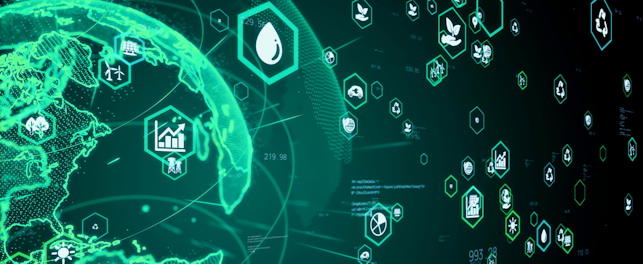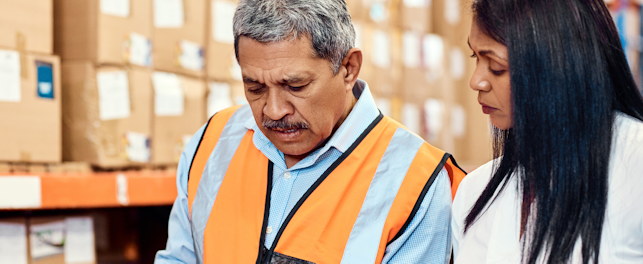Assess human rights risks and impacts throughout supply chains to meet due diligence requirements with our versatile, detailed new service.
Customizable assessment that goes beyond workplace audits
Evolving requirements to respect and protect human rights and demands for supply chain transparency create an urgent need for decisive solutions that support your supply chain management, continuous improvement and efforts to meet due diligence requirements. The natural evolution of corporate social responsibility (CSR) also demands more robust responsible sourcing programs.
Moving away from traditional audits of working conditions, we can help you foster responsible business practices and mitigate human rights risks and adverse impacts across your supply chain, such as reputational damage and hefty penalties like fines and delayed time to market.
Special focus on your industry
Our tool can assess any organization’s human rights risks and impacts, and is easily adaptable to focus on risks and impacts specific to your industry or sector, as per international standards, evolving legal requirements and best practices.
From a traditional manufacturing or office setting to a farm or fishing vessel, we have many modules to suit the vulnerabilities and risks found within the diverse working environments throughout extended supply chains, including:
- Food – farms, packing houses and fishing vessels, etc.
- Automotive – car parts manufacturing facilities and assembly plants, etc.
- Industrial manufacturing – factories, facilities and recruitment, etc.
- Textiles – agriculture, manufacturing and logistics facilities, etc.
- Service industries – IT, call centers, real estate and recruitment, etc.
More modules are still to come, as we evolve this service.
Assessment areas
We consider the varying formality of systems in different working environments, adapting to each circumstance to ensure the appropriate assessment and evolution of compliance. Assessment areas include:
- Management systems and human rights due diligence
- Compliance with laws and client requirements
- Forced labor and responsible recruitment
- Child/young labor
- Discrimination, equality and diversity
- Grievance mechanisms and disciplinary actions
- Freedom of association and collective bargaining
- Working hours
- Wages and benefits
- Health and safety
- Environment
- Anti-bribery and integrity
Key benefits
- Understand your suppliers’ operations by collecting information on their facilities and practices
- Create more productive and sustainable workplaces, and attract and retain talented workers
- Save time and money through flexible and streamlined single or multisite audits
- Showcase your shared values through managing and monitoring compliance with human rights regulations and international standards
- Substantiate your sustainability/ESG reporting and evidence transparency across your supply chain
- Promote a culture of respect for human rights and improvement of working conditions
- Avoid costly penalties and delaying products going to market
- Leverage a global network of experts, trained to assess risks in various industries and working environments, aligning with international standards, legal requirements and best practices
- Contribute to the UN Sustainable Development Goals (SDGs), including goals 1, 4, 5, 8, 10 and 16
Why SGS?
Our assessment tool aligns with numerous international standards, including:
- The International Labour Organization (ILO) Conventions and Recommendations
- The ILO Declaration of Fundamental Principles and Rights at Work
- UN Guiding Principles on Business and Human Rights
- All ILO forced labor indicators
- Relevant principles like the Employer Pays Principle
Furthermore, SGS auditors conducting these audits meet the appropriate Association of Professional Social Compliance Auditors’ (APSCA) qualification criteria.
Contact us to discuss your needs in detail.
For further information, please contact:
Jason Hulbert
Associate Marketing Manager
Knowledge
t: +44 7912426878
About SGS
We are SGS – the world’s leading testing, inspection and certification company. We are recognized as the global benchmark for sustainability, quality and integrity. Our 98,000 employees operate a network of 2,650 offices and laboratories, working together to enable a better, safer and more interconnected world.



